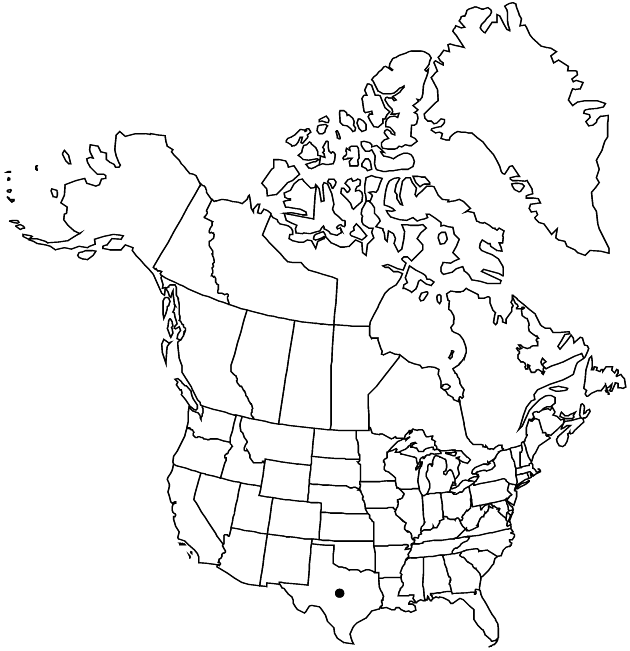Difference between revisions of "Grindelia adenodonta"
Phytologia 73: 327. 1992.
FNA>Volume Importer |
imported>Volume Importer |
||
| (6 intermediate revisions by 2 users not shown) | |||
| Line 7: | Line 7: | ||
|year=1992 | |year=1992 | ||
}} | }} | ||
| − | |basionyms={{Treatment/ID/ | + | |special_status={{Treatment/ID/Special_status |
| + | |code=E | ||
| + | |label=Endemic | ||
| + | }} | ||
| + | |basionyms={{Treatment/ID/Basionym | ||
|name=Grindelia microcephala var. adenodonta | |name=Grindelia microcephala var. adenodonta | ||
|authority=Steyermark | |authority=Steyermark | ||
| + | |rank=variety | ||
| + | |publication_title=Ann. Missouri Bot. Gard. | ||
| + | |publication_place=21: 467. 1934 | ||
}} | }} | ||
|synonyms= | |synonyms= | ||
| Line 34: | Line 41: | ||
-->{{#Taxon: | -->{{#Taxon: | ||
name=Grindelia adenodonta | name=Grindelia adenodonta | ||
| − | |||
|authority=(Steyermark) G. L. Nesom | |authority=(Steyermark) G. L. Nesom | ||
|rank=species | |rank=species | ||
| Line 48: | Line 54: | ||
|publication title=Phytologia | |publication title=Phytologia | ||
|publication year=1992 | |publication year=1992 | ||
| − | |special status= | + | |special status=Endemic |
| − | |source xml=https:// | + | |source xml=https://bitbucket.org/aafc-mbb/fna-data-curation/src/2e0870ddd59836b60bcf96646a41e87ea5a5943a/coarse_grained_fna_xml/V19-20-21/V20_987.xml |
|tribe=Asteraceae tribe Astereae | |tribe=Asteraceae tribe Astereae | ||
|genus=Grindelia | |genus=Grindelia | ||
Latest revision as of 20:07, 5 November 2020
Annuals, 30–130 cm. Stems erect, stramineous to purple, proximally sparsely hirtellous to glabrate, distally ± hirtellous to villosulous. Cauline leaf blades ovate or ± triangular to oblong or obovate, 15–60(–90) mm, lengths 1.5–3(–4+) times widths, bases ± clasping, margins ± crenate (teeth 8–14 per cm, blunt, resin-tipped), apices obtuse to acute, faces usually hirtellous to scabridulous and glandular (glands usually in pits, sometimes sessile, seldom stipitate), sometimes glabrate. Heads in open, corymbiform to paniculiform arrays or borne singly. Involucres ± urceolate to hemispheric, 8–12 × 10–20 mm (usually subtended by leaflike bracts). Phyllaries in 4–6 series, spreading to appressed, lanceolate to linear, apices subulate, hooked to ± recurved or nearly straight, moderately resinous. Ray florets 20–27; laminae 8–12 mm. Cypselae stramineous or brownish, 3–4.5 mm, apices ± coronate to knobby, faces (outer) rugose (not transversely fissured; angles ± ribbed) or (inner) striate; pappi of 2 straight or weakly contorted, smooth (apices dilated), bristles or setiform awns 5–6 mm, equaling or surpassing disc corollas. 2n = 12.
Phenology: Flowering (Jun–)Jul–Sep.
Habitat: Prairies, thickets, along streams
Elevation: 10–200 m
Discussion
Selected References
None.
